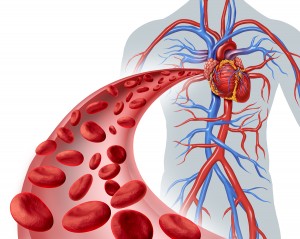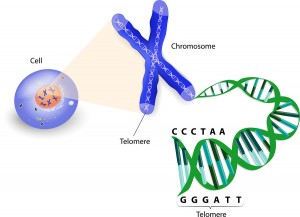Have you ever thought about the possibility to prolong your “Freshness Date”? At the 23rd Annual World Congress on Anti-Aging Medicine on Dec. 13, 2015 in Las Vegas the endocrinologist, Dr. Thierry Hertoghe from Belgium gave a talk about “How to extend the human lifespan by 40 years”. Dr. Hertoghe explained that it is possible to extend life by paying attention to the factors that prolong life and combining them as an anti-aging type lifestyle. He made a distinction between
- normal aging: up to age 82
- healthy aging: up to age 100
- anti-aging medicine: up to age 122
- reversing aging medicine: much more than 122, perhaps to age 150 or more.
Normal aging (up to age 82)
Life expectancy is on average about 82 years. From the age of 50 to 60 onwards you may encounter problems with increased cholesterol, high blood pressure leading to heart attacks and strokes. Coronary artery by-pass surgery may extend an individual’s life by 10 to 15 years. But hardening of the arteries in the general circulation will eventually cut down the blood supply to vital organs leading to premature death that could have been avoided.
Around the mid 60’s to mid 70’s 12.4% of African Americans or 2.9% Caucasians get Alzheimer’s disease. These figures worsen rapidly with further aging: in their mid 70’s to mid 80’s 32.5 % of African Americans and 9.8% of Caucasians suffer from Alzheimer’s disease. At the age of 85+ years 54% of African Americans and 27% of Caucasians have Alzheimer’s disease. With normal aging Alzheimer’s has already increased, and this trend likely is continuing.
Loss of memory, depression and musculoskeletal pain
Memory loss also leads to a shortened survival curve; people with memory loss live two years less on average than compared to a group with no memory loss.
Add to this loss of life because of depression, common in older age. Compared to a non-depressed group over 2 years of older people the depressed group lived 30% shorter.
Musculoskeletal pain in younger age (18-44) was 38%; the next demographic group aged 45-64 reported 61% of musculoskeletal pains; seniors between 65 and 74 had 68% of musculoskeletal pain, and in the demographic group of 75 and up 71% of persons suffered of musculoskeletal pain. As we will learn later there may be hormone deficiencies behind these neck and back pains. If the patient does not seek treatment, this can lead to falls, fractured hips and premature loss of life. Those who survive accidents often become wheel chair bound and end up in nursing homes.
Patients with rheumatoid arthritis and patients with other disabilities have a lower life expectancy
One specific subgroup of patients with musculoskeletal pain are rheumatoid arthritis sufferers. After 10 years of having rheumatoid arthritis patients will have a survival of only about 50%. With involvement of more than 30 joints (more severe form of the disease) only about 40% will survive. In other words, rheumatoid arthritis is an important factor for lowering people’s life expectancy.
At an age of 65 to 74 men have 23% of disabilities, while woman have 27.5% disabilities. This increases between the ages of 75 or older to 40% for men and 44.5% for women. At the age of 65 disabled men have a 3.5% higher death rate than the average population; disabled women’s death rate is 2.5% higher than the normal population. In other words, disability kills.
Obesity, and heart disease
Urinary urgency and incontinence leads to a 3.13-fold higher mortality rate than a control group of men who do not have these symptoms.
65% of men and 85% of women above the age of 50 have abdominal obesity. This is not just a harmless condition. There is an association between increased triglyceride levels and increased mortality due to cardiovascular disease and diabetes.
By the age of 65-74 heart disease has a frequency of 32% in men and 23% in women. At the age of 75 years and older this jumps to 44% in men and 32% in women. Once the doctor diagnoses heart disease, it causes a lot of premature deaths: an average person with heart disease lives 10 years shorter than those who do not have heart disease!
Healthy aging (up to age 100)
Improving lifestyle factors increases life expectancy
If we look at normal aging, we realize that all these diseases and disabilities we discussed are eventually killing us. In order to live longer we have to take steps that are known to interfere with some of these factors. For instance, quitting smoking will prevent heart disease, several cancers and chronic obstructive lung disease (emphysema). Positive thinking, social support and transcendental meditation will increase survival by preventing mental illness and depression, which in turn will prevent suicides. A healthy diet such as the Mediterranean diet or the Pegan diet will avoid cardiovascular disease and cut down cancer rates.
Live longer with better diet
One dietary change is called the “polymeal”. It consists of fish, fruit, vegetables, garlic, almonds, a moderate amount of wine and dark chocolate. Compared to the Standard American diet this type of diet would add 9 years for men and 8.1 years for women regarding their life expectancy. For instance, prostate cancer showed a 7-fold increase in a group of men who ate a lot of pickled vegetables, fermented soy products, salted fish and preserved meats, when compared to a control group who did not include these foods. In a group of women who had their meat well done and ate three servings of beef per week, breast cancer risk was 4.62-fold higher compared to women who ate meat done rare or medium rare. Overall cancer and cardiovascular mortality dropped by 35% in a study where 5 or more servings of fruit and vegetables were eaten per day.
Regular exercise and supplements of vitamin C and omega-3
A regular exercise program will strengthen the heart and lungs, keep your weight stable, reduce heart attacks and strokes and reduce the probability to develop cancer. A group of men between 61 and 81 were observed over 12 years and divided into those who did not exercise versus those who walked more than 2 miles per day. The exercising men had 19% less mortality compared to the sessile men. Vitamin C from fruit and vegetables or from taking supplements reduces global mortality from all causes by 46% compared to controls that did not. Similarly taking omega-3 fatty acid supplements (fish oil) daily reduced all cause mortality by 20%.
Dr. Hertoghe calls this “healthy aging” and this would allow you to be able to reach an age of about 100 years.
Anti-aging medicine (up to age 122)
Low thyroid hormones
Dr. Hertoghe told the audience that further attention to anti-aging factors could reduce mortality even further. He found over the years that paying attention to correcting hormonal weaknesses would have profound effects on how old a person becomes. Thyroid hormone replacement has been one of the steps that has helped people to feel more energetic, have less muscle pain, less falls, less fractures and complications. It also translates into longer lives.
One slide showed that a low free T3 level (low thyroid) was associated with a 3.6-fold higher death rate. A low free T3 level is an accurate predictor of cumulative death rate in cardiac patients.
T3 is also important for the maintenance of the immune system, which shows in patients with tuberculosis: the one-year mortality rate from TB in thyroid deficient patients was 75%, while patients with a normal thyroid had a mortality from TB of only 7%.
Replacement of missing sex hormones
Secondly, replacing missing sex hormones can add more life because cardiovascular disease is postponed (less heart attacks, less strokes), there is less cancer and better cancer survival, if a person comes down with cancer. Many statistics were quoted.
One interesting slide showed the longitudinal survival follow-up of congenital dwarfs in comparison with their normal brothers or sisters. Untreated male dwarfs turned only 56 years on average, while their unaffected normal brothers turned 75 years on average (19 years longer). With female dwarfs the difference is even more striking: untreated females dwarfs turned 46 years on average, while their normal sisters turned 80 years on average (a difference of 34 years).
Bioidentical hormone treatment prolongs life, lowers heart attack rates and lowers cancer rates
Another publication showed that the heart attack risk was 3.8-fold higher in a group of patients with hypopituitarism (under function of the pituitary gland), but the treatment group (treated with GH) had a normal rate of heart attacks.
11606 men aged 40 to 79 years were followed for between 6 and 10 years. The group who had the top 25% range of testosterone had a 19% lower mortality rates from heart attacks or cancer.
Older women, particularly aged 100 in Okinawa had 2.3-fold higher testosterone levels than women in the US at age 70. On the other hand 70-year old Okinawan women had 2.7-fold higher estrogen levels than US women.
Bioidentical hormone replacement therapy (BHRT) prior to developing breast cancer showed a 27% longer survival among 984 breast cancer patients in Sweden compared to those without prior hormone treatment.
Lower mortality rates for bioidentical hormone replacement therapy of breast cancer patients
In another group of breast cancer patients (2755 patients) aged 35 to 74 who were treated with bioidentical hormone replacement therapy (BHRT) after their breast cancer diagnosis, 50% had a lower recurrence rate (compared to no-BHRT treatment) and there was a reduction of 66% of mortality from breast cancer compared to controls without BHRT treatment. Another study showed that breast cancer patients would have a mortality rate of 33.3% without hormone treatment. After non-estrogen hormone treatment the mortality rate dropped to 12.5% and to 6% after estrogen/progesterone use. This shows the healing results of the various natural hormones.
Treating the cause rather than the symptoms
A group of 280 men and women around the age of 50 were treated with anti-aging hormone replacement for 2 or more years. In the beginning there were 34% of women and 15% of men with coronary artery disease. There were also 36.4% of women and 34.1% of men with high blood pressure. After replacing all of the missing hormones with bioidentical hormones for more than 2 years, coronary artery disease had dropped to 1.6% of the women and 1.08% of the men; high blood pressure had dropped to 2% of the women and 3% of the men. No drugs, just hormones! Of course, initially the doctors prescribed drugs to stabilize their condition, but they could gradually drop them safely. The reason was that the doctors treated the underlying hormone deficiency. The doctors were treating the cause of the cardiovascular disease rather than only the symptoms.
Low mortality of women on bioidentical hormone replacement
Dr. Hertoghe presented data of 6.38-year follow-up of 286 consecutive patients using anti-aging medicine (replacement of missing hormones with bioidentical hormones). These patients had an overall cancer rate of 2.1%, which compared very favorably to the 3.2% cancer rate among US women. The overall cancer rate was 3.1% in French women and 3.1% in Belgium women on no hormones. This is the type of information that is needed following the Women’s Health Initiative (WHI) that scared women into the false belief that hormones would be “poisonous”.
Synthetic hormone do not fit the hormone receptor
In the WHI synthetic hormones caused cancer and heart attacks; the reason for this was that synthetic hormones are not the identical shape as the natural hormones. But hormones and hormone receptors have to fit like a key into a lock; otherwise they are not effective or even block the natural life prolonging action of the natural hormone. This is why in the WHI study the outcomes were poor. Using bioidentical hormones the doctor can prevent heart attacks and strokes and they are also cancer-protective.
Reversing aging medicine (much more than 122, perhaps to age 150 or more)
General medicine has the goal to make patients as healthy as possible. With reversing aging medicine the goal is to make patients as young as possible. They are at their healthiest and feel younger again.
With anti-aging medicine using a healthy diet, exercise and bioidentical hormone replacement therapy the patients can add 15 years of good life. Add to these organ transplants, if necessary, telomerase activators and stem cell therapy. This can add another 25 years of life expectancy to a total of 40 years.
Growth hormone deficiency
Growth hormone deficiency is the one factor that has been underestimated. The discussion of dwarfs in comparison to their healthy brothers and sisters showed us the following. Growth hormone production can add between 19 and 34 years (average 26.5 years) of life. Dr. Hertoghe has done blood tests (IGF-1) and lately also 24-hour urine metabolite tests of growth hormone on aging patients and found that many are deficient with regard to GH production. These were patients where Dr. Hertoghe already replaced their thyroid hormones, if abnormal and replaced their sex hormones when they were low. But they lost hair, developed old looking faces with wrinkles. In addition, a loss of subcutaneous fatty tissue is giving the face a hollow appearance. They also had muscle and joint pains and thin skin, particularly over the back of their hands.
Replacement of growth hormone
He replaced their missing GH using daily GH self-injection with a tiny needle (similar to diabetes injections). Within 1.5 to 3 years the wrinkles disappeared, the faces started to look younger and patients did feel younger. Their muscle and joint pains had disappeared and their hair grew back. The dosage range is between 0.1mg and 0.3mg, a tiny amount of GH daily. This is not inexpensive, but some health care plans pay for this, as a lack of GH is a true hormone deficiency.
About organ transplants
Often it is a single limiting organ that determines when we die, typically the heart, lungs, brain, liver, kidneys, small bowel, pancreas or bone marrow. Organ transplants can add years of life, but it can be cumbersome to find a suitable donor. One study showed that only 40% to 60% of organ transplants are surviving 8 years after the surgery.
Stem cell therapies are other ways to prolong life. More research will perfect this, but essentially stem cells can provide 220 different cell types for in-vitro organ culture. This can probably be of use in the future to replace malfunctioning organs.
Conclusion
The dream of staying younger for longer can be a reality today. You just need to be willing to discipline yourself and watch what you are eating (Mediterranean type diet). Also, exercise regularly and have a positive psychological attitude. If the outdoor air is poor where you live, you may want to consider moving. Move to a place with good air quality. Sleep well for 7 ½ hours every night and retire not later than 10 to 11PM. You need to be asleep between midnight and 3AM as the growth hormone peak occurs at that time.
Take supplements
Take supplements that contain longevity micronutrients (magnesium, vitamins A, C, D, E, B6, B12, Co-Q-10, selenium, zinc, iron in premenopausal women etc.). Replace all missing hormones with bioidentical ones, like thyroid hormones (T3 and T4), sex hormones, DHEA and GH. Stem cell therapy and telomerase activators for cell rejuvenation will also have more of a place in the future.
Even, if you do only part of this reversing aging program you will slow down aging.















